Find Help
More Items From Ergsy search
-
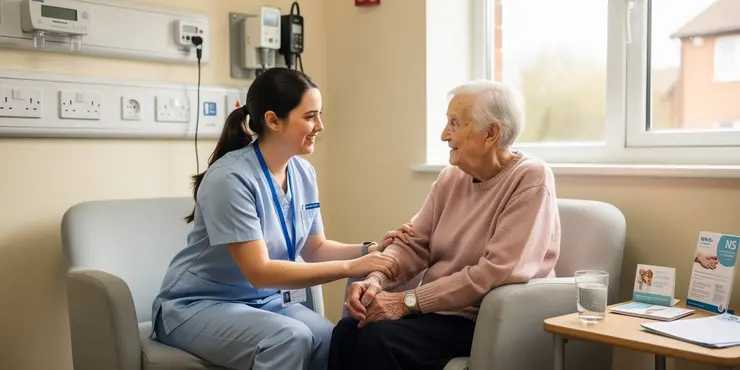
Dr Hilary Jones on Residential Care PART 2.
Relevance: 100%
-
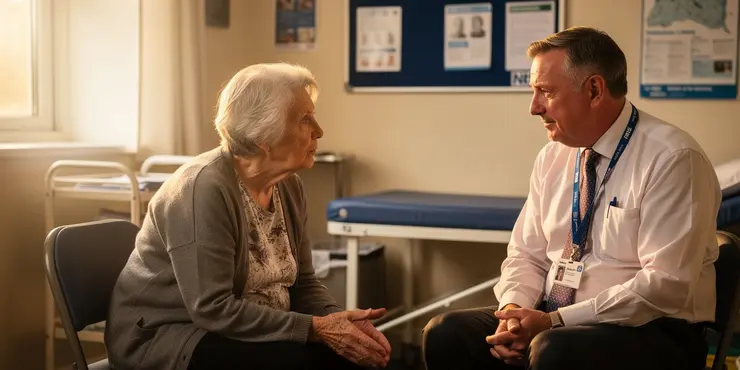
Dr Hilary Jones on Residential Care PART 1.
Relevance: 99%
-

The role of residential & nursing homes
Relevance: 79%
-
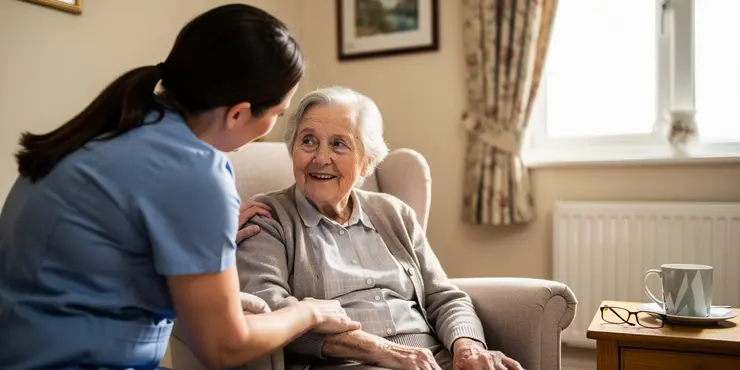
The role of residential and nursing homes
Relevance: 78%
-

Do care homes provide medical care?
Relevance: 63%
-
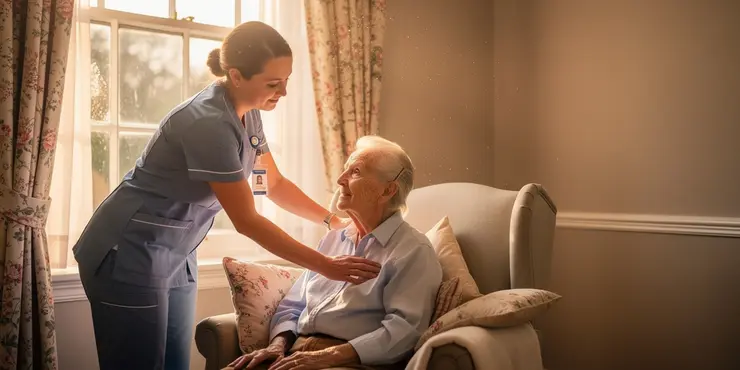
Are there different types of care homes?
Relevance: 59%
-
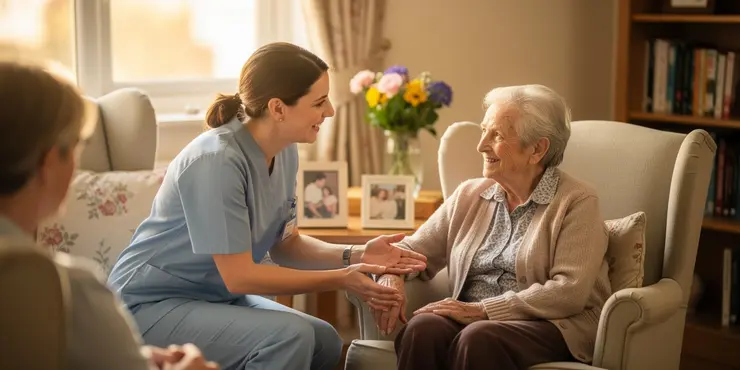
What are Care Homes?
Relevance: 55%
-

Remortgage within 6 Months on the open market value Residential or Buy to Let Properties
Relevance: 51%
-
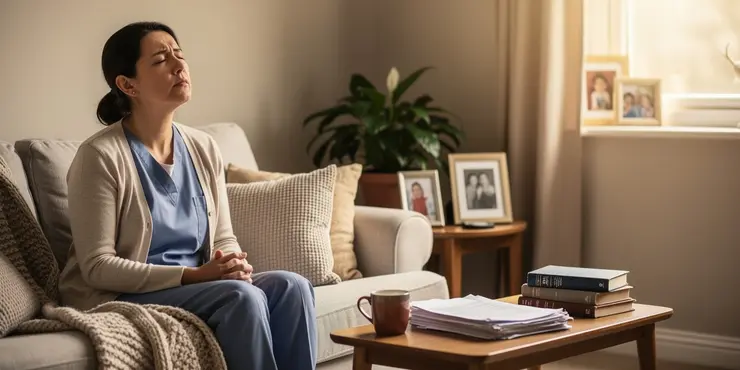
What respite care options are available for carers?
Relevance: 47%
-
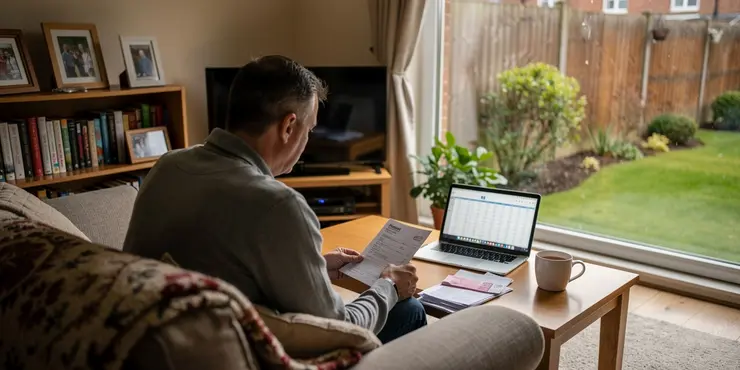
Should you Pay down your Residential Mortgage?
Relevance: 46%
-
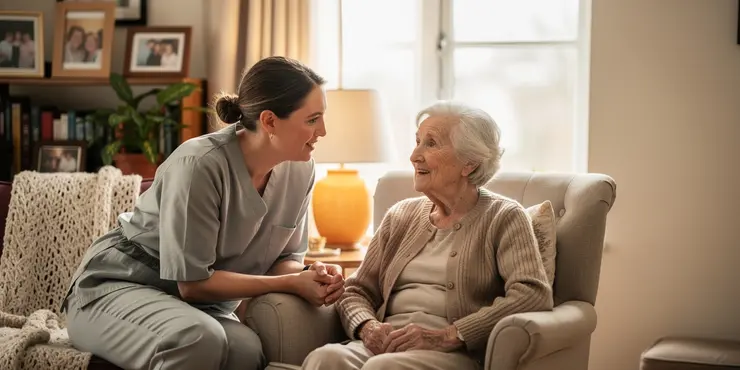
Dementia Care at Colten Care
Relevance: 46%
-
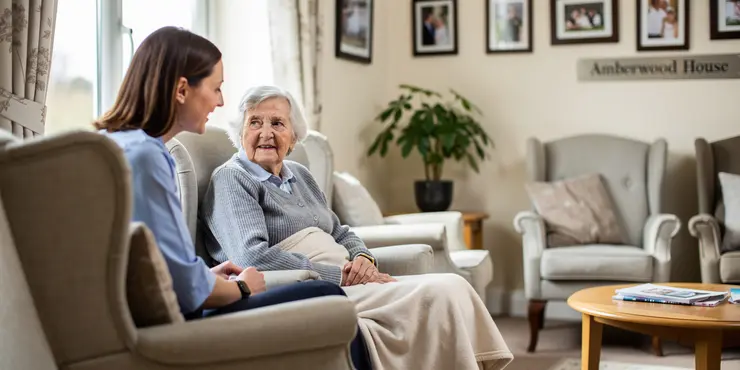
Amberwood House (Colten Care)
Relevance: 45%
-
What is the role of Live In Care?
Relevance: 45%
-
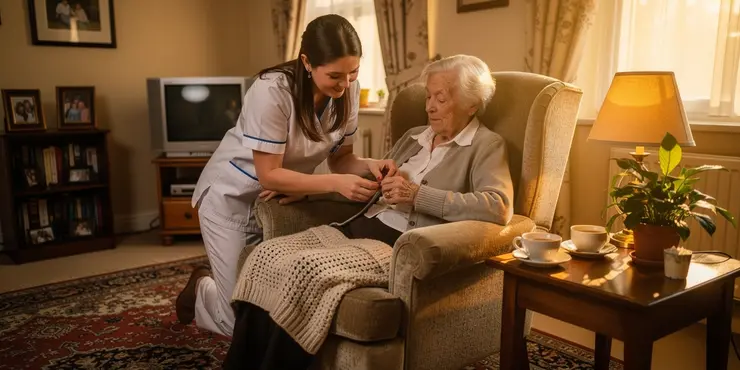
Who benefits from live-in care?
Relevance: 44%
-
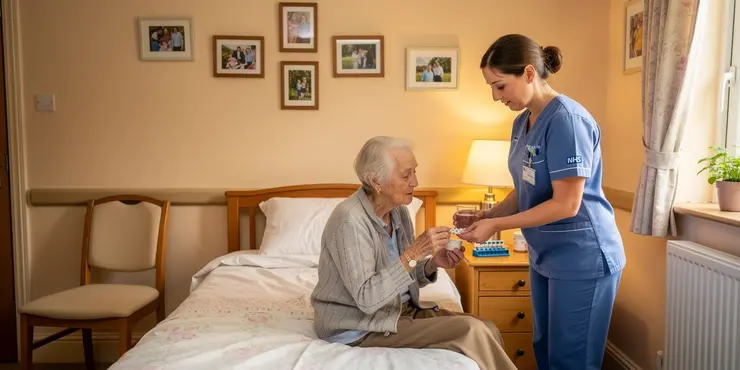
What services do care homes provide?
Relevance: 43%
-

Dr Hilary Jones shares his professional and personal thoughts on Colten Care
Relevance: 43%
-

Can couples live together in a care home?
Relevance: 41%
-
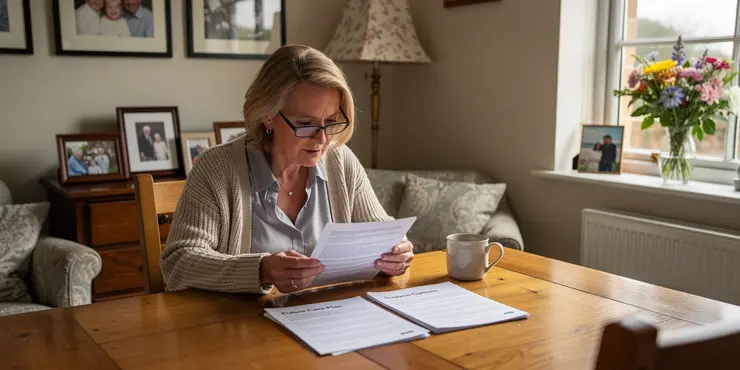
How can I plan for future care needs?
Relevance: 41%
-
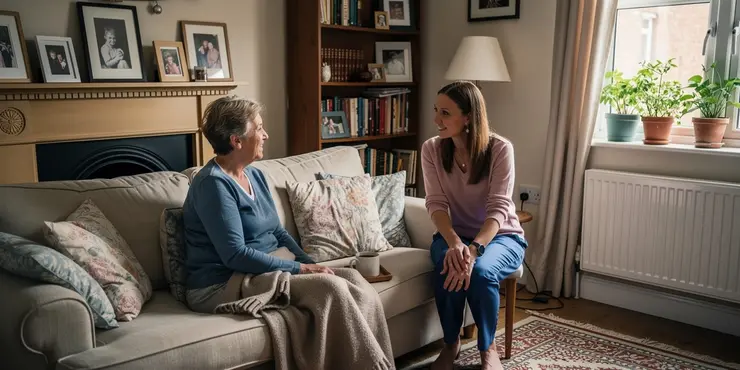
Is live-in care available for short-term needs?
Relevance: 40%
-
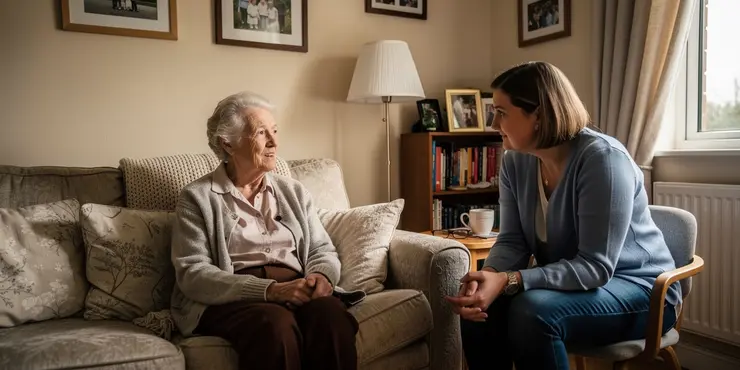
How can seniors access long-term care support?
Relevance: 40%
-

Who can live in a care home?
Relevance: 40%
-
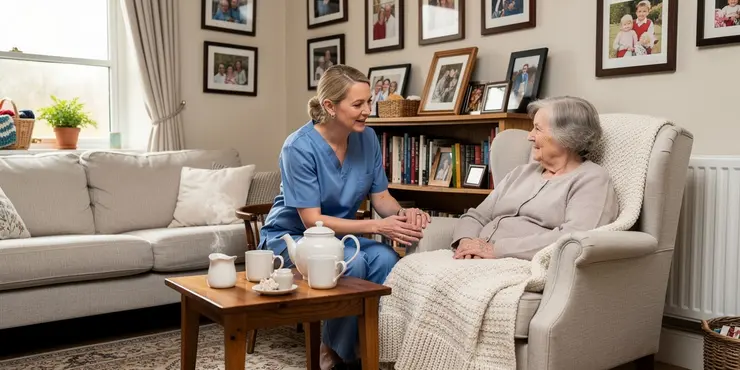
Can live-in care support individuals with dementia?
Relevance: 39%
-
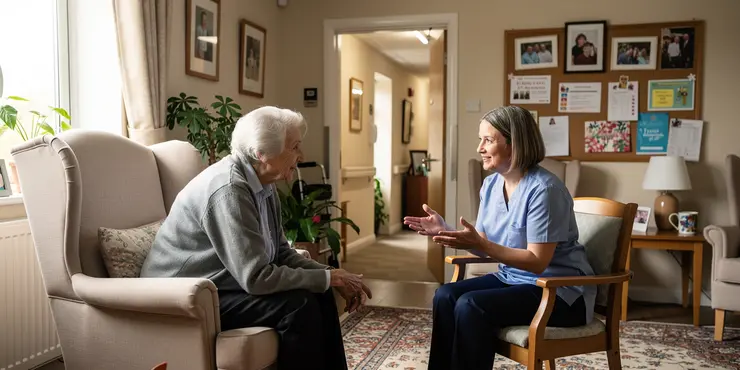
How is the quality of care regulated in care homes?
Relevance: 39%
-
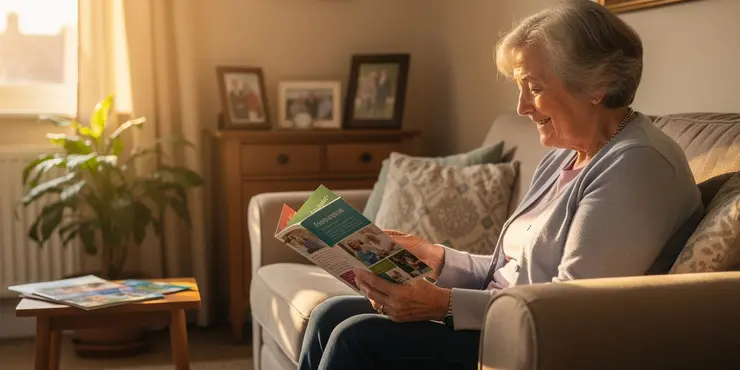
How can I choose the right care home?
Relevance: 38%
-

Transforming Care for people with Learning Disabilities and/ or Autism: Peter's Story
Relevance: 37%
-
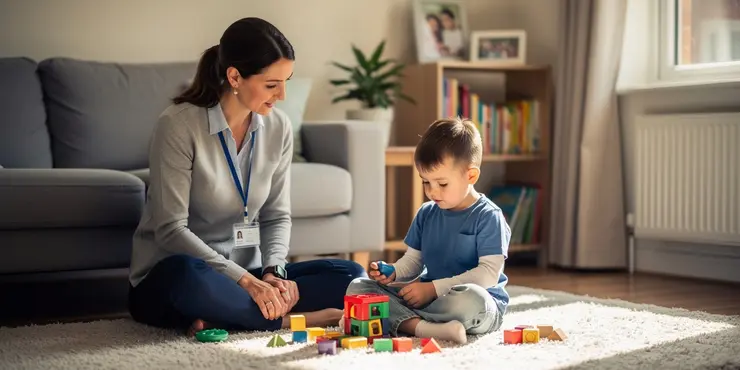
Child Care Proceedings | Family Law
Relevance: 36%
-
Chiropractic Care on the NHS
Relevance: 35%
-

Stoma Care
Relevance: 35%
-
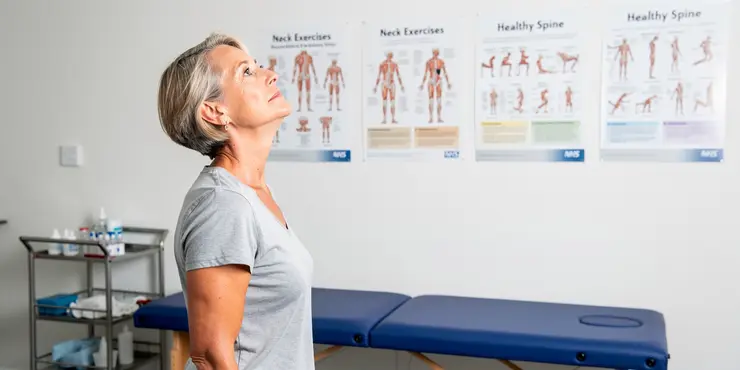
Neck Care Exercises
Relevance: 35%
-
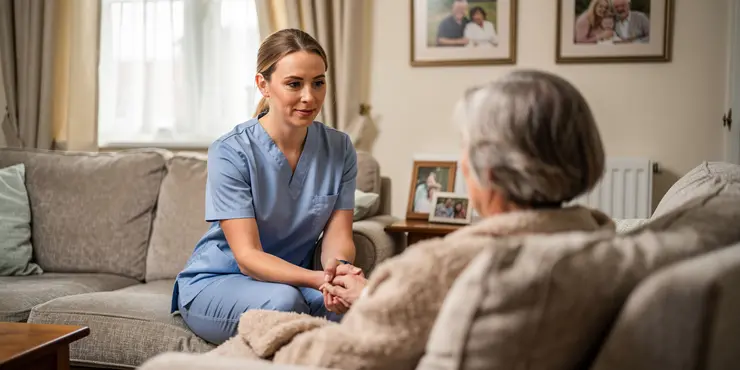
What is end of life care?
Relevance: 34%
-
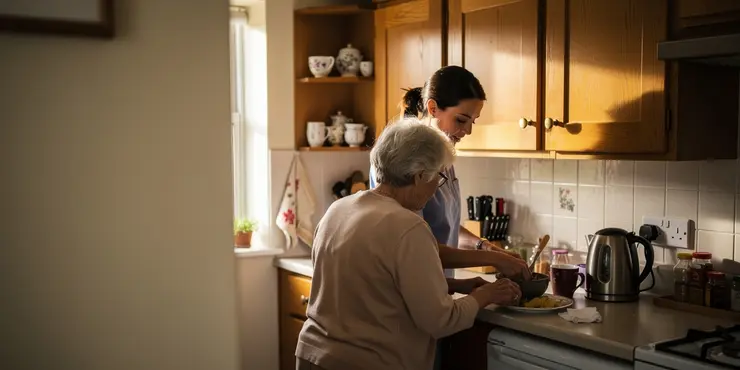
Can live-in care be customized?
Relevance: 34%
-
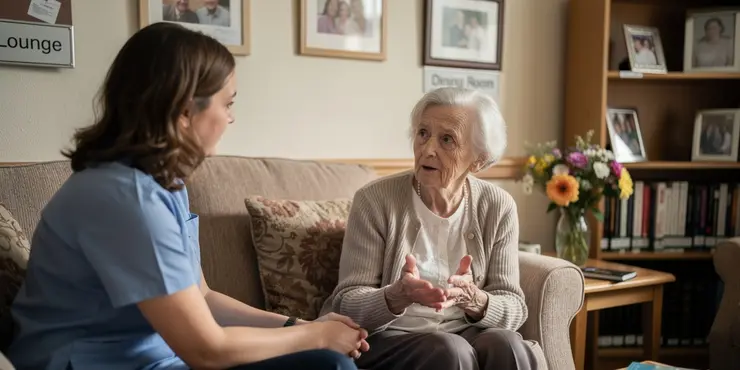
The role of care homes dedicated to caring for people living with dementia and memory loss
Relevance: 34%
-

How can primary care support workers contribute to patient care improvement?
Relevance: 34%
-

What is the cost of living in a care home?
Relevance: 33%
-

Birchgrove - Assisted-living accommodation and care
Relevance: 33%
-
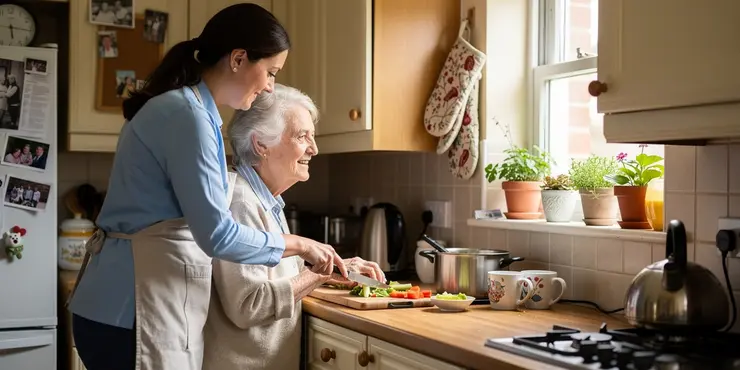
Is live-in care an alternative to nursing homes?
Relevance: 33%
-

Are there opportunities for specialization in primary care support?
Relevance: 33%
-

Are dietary needs accommodated in care homes?
Relevance: 33%
-
Are activities provided for residents in care homes?
Relevance: 32%
-
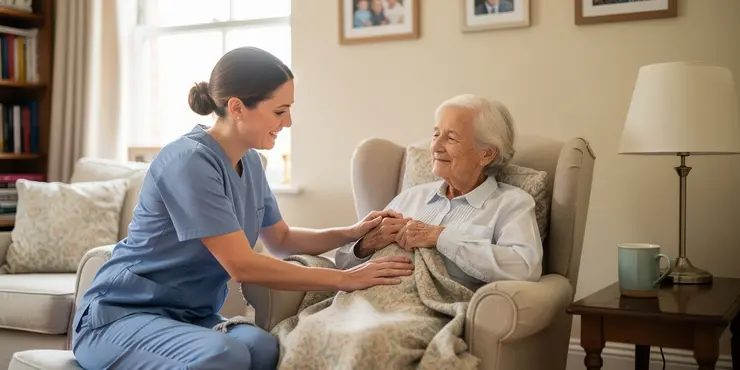
How is the quality of live-in care monitored?
Relevance: 32%
Dr. Hilary Jones on Residential Care: Part 1
Who is Dr. Hilary Jones?
Dr. Hilary Jones is a well-respected medical professional in the United Kingdom, known primarily for his role as a television presenter and general practitioner. He has appeared regularly on various UK television programs, offering medical advice and insights on a range of health topics. With decades of experience in the healthcare sector, Dr. Hilary has become a trusted voice for millions of viewers, especially in areas concerning public health and wellbeing.
The Importance of Residential Care
Residential care plays a crucial role in supporting the elderly and those with specific health needs who might not be able to fully care for themselves at home. These facilities offer a range of services including personal care, medical monitoring, and social activities to ensure a holistic approach to health and wellbeing. The significance of residential care has increased as the UK population ages, highlighting the need for well-equipped facilities that cater to the diverse requirements of their residents.
Dr. Hilary Jones' Perspective on Residential Care
Dr. Hilary Jones emphasizes the importance of choosing the right residential care for loved ones. He believes that the decision should be made based on a comprehensive assessment of medical needs, personal preferences, and the quality of care available. According to Dr. Hilary, finding a facility that fosters a homely and supportive environment is vital to maintaining the mental and physical health of residents. He advocates for transparency and communication between residential care providers, residents, and their families to ensure high standards of care are maintained consistently.
Dr. Hilary Jones on Residential Care: Part 1
Who is Dr. Hilary Jones?
Dr. Hilary Jones is a famous doctor in the UK. He is known for being on TV and helping people understand health better. He has worked as a doctor for many years. Lots of people listen to his advice about staying healthy.
The Importance of Residential Care
Residential care is very important for older people or those who need help with their health. These places help people who can't take care of themselves at home. They offer help with daily activities, check-ups by doctors, and fun activities. As more people in the UK get older, these places become even more important. They need to have everything ready to help people with different needs.
Dr. Hilary Jones' Perspective on Residential Care
Dr. Hilary says it's important to pick the right place for loved ones who need care. You should look at what medical help they need and what makes them comfortable. The place should feel like home and be caring. Dr. Hilary thinks it's important for care places, the people living there, and their families to talk and work together. This helps make sure everyone gets the best care possible.
Frequently Asked Questions
What is residential care?
Residential care refers to a setting where individuals live in a facility with 24-hour support and assistance. This includes help with personal care like bathing, dressing, and taking medication.
Who might need residential care?
Residential care is suitable for individuals who can no longer live independently due to physical or cognitive impairments requiring supervision and support.
What types of services are provided in residential care?
Services include personal care, meals, housekeeping, laundry, social activities, and medication management. Some facilities also offer nursing care.
How is residential care paid for in the UK?
Payment methods for residential care might include self-funding, local authority assistance, or benefits. Financial assessments determine eligibility for support.
What should I look for when choosing a residential care home?
Consider factors like location, facilities, staff experience, CQC ratings, resident reviews, and the specific care services offered.
What is the difference between residential care and nursing care?
While both provide support with daily activities, nursing care homes additionally offer 24/7 medical care provided by registered nurses.
Can residents have visitors in residential care homes?
Yes, most residential care homes encourage visits from family and friends, though visiting hours and policies may vary by facility.
Are pets allowed in residential care homes?
Policies on pets differ by home, but some do allow pets or have communal pets in residence. It's best to check with the specific home.
What is the role of the Care Quality Commission in residential care?
The Care Quality Commission regulates and inspects care homes in England to ensure they meet quality and safety standards.
How can I find a suitable residential care home?
Use resources like the Care Quality Commission website, NHS Choices, or contact local social services for recommendations and advice.
What activities are available in residential care homes?
Activities may include arts and crafts, music sessions, exercise classes, and social gatherings to promote engagement and well-being.
Can residents personalize their living spaces?
Many homes allow residents to bring personal belongings to decorate their rooms, creating a comfortable and familiar environment.
How are meals handled in residential care homes?
Care homes provide meals tailored to meet nutritional needs, with consideration for dietary restrictions and preferences of residents.
What training do staff in residential care homes receive?
Staff typically receive training in areas like personal care, health and safety, dementia care, first aid, and safeguarding adults.
How can I assess the quality of a residential care home?
Visit the home, speak with staff and residents, and review reports from the Care Quality Commission to gauge the quality of care provided.
What is residential care?
Residential care is a place where people live when they need extra help. This can be for older people or people who need special care.
In residential care, people get help with things like eating, washing, and getting dressed.
People who live in residential care have people to look after them all the time.
Tools that help:
- Pictures can help show what residential care is.
- Talking with someone can help explain it better.
Residential care is a place where people live and get help all day and night. They get help with things like taking a bath, getting dressed, and taking their medicine.
Who might need to live in a care home?
Residential care is a good choice for people who cannot live alone anymore. This might be because they have problems with their body or mind and need someone to help and watch over them.
What help can you get in a care home?
Care homes are places where people live if they need extra help. Here are some things they can help with:
- Everyday tasks: Things like washing, eating, and getting dressed.
- Health care: Nurses and doctors can help if you feel sick.
- Food: You get meals every day.
- Fun activities: Like games and crafts to make you smile.
- Safety: People to keep you safe all day and night.
If you need more help with reading, try asking someone to read with you or using a computer to read the words out loud.
We help you with:
- Getting dressed and washing
- Eating meals
- Keeping your room tidy
- Doing your laundry
- Joining fun activities
- Taking your medicine
Some places also have nurses to help you.
How do you pay for living in a care home in the UK?
In the UK, when you live in a care home, it costs money. There are ways to help pay for this:
- Own Money: You can use your own money or savings to pay.
- Government Help: The government might help pay if you don’t have enough money. This is called "funding."
- Ask Your Council: You can talk to your local council. They check your money and decide if they can help.
Here are some tips to help:
- Ask a family member or a friend for support.
- Use a calculator to help with money sums.
- Write down questions you have and take them to your council meeting.
Remember, it’s okay to ask for help!
Ways to pay for living in a care home can include using your own money, getting help from the local council, or using benefits. A money check-up decides if you can get help to pay.
How do I pick a good care home?
Choosing a good care home is important. Here's how you can do it:
- Visit the Home: Go and see the home yourself.
- Talk to Staff: Speak to the people who work there. Ask them questions.
- Check Cleanliness: Make sure everything is clean and tidy.
- Activities: Ask if people can do fun activities.
- Meal Options: Check what food they serve. Is it healthy and tasty?
- Safety: See if the home feels safe and secure.
- Talk to Residents: If you can, talk to people who live there. See if they are happy.
If you need help, you can:
- Ask a friend or family member to go with you.
- Write down what you like and don’t like.
- Use pictures or videos to remember your visit.
Think about where the place is, what things they have, how good the staff are, if the place has good ratings from the CQC, what people who live there say about it, and what special care they give.
Here are some tools and techniques to help:
- Use a map to check the place’s location.
- Visit the place to see the facilities and meet the staff.
- Look online for the CQC ratings.
- Read reviews from people who live there or talk to them if you can.
- Make a list of the care services you need and see if they offer them.
What is the difference between residential care and nursing care?
Residential care is a home where people live and get help with daily tasks like eating and washing. People who need a little extra help, but not medical care, might choose residential care.
Nursing care is a home for people who need more help because they have medical needs. Nurses are there to give medicine and look after health problems.
If you find reading hard, here are some tips:
- Ask someone to read with you.
- Use a pen to point at the words as you read.
- Take breaks if the words are too much.
- Use pictures or videos to understand better.
Both places help with daily activities. But nursing care homes also have nurses who take care of medical needs all the time, day and night.
Can people who live in care homes have visitors?
Yes, people living in care homes can have visitors. Family and friends can come to visit them.
If you want more help to understand, you can:
- Ask someone to explain it to you.
- Use pictures or drawings to help understand.
- Listen to someone read it out loud.
Yes, most care homes want family and friends to visit. But the times you can visit might be different at each home.
Can you have pets in care homes?
Do you want to know if you can have pets, like dogs or cats, in care homes?
Here are some tips that might help:
- Ask the staff: Talk to the people who work at the care home to find out.
- Check the rules: Every care home might have different rules about pets.
- Use pictures: Looking at pictures of pets can help you understand what pets are allowed.
- Bring a friend: If you find it hard to ask questions, bring someone who can help you.
Each home has different rules about pets. Some homes let you have pets, and some have pets that everyone can enjoy. It is a good idea to ask the home you are interested in.
What does the Care Quality Commission do in care homes?
The Care Quality Commission, or CQC for short, checks that care homes are safe and good for people living there.
The CQC visits care homes to see if they are clean and the staff are kind.
The Commission makes sure that the food is nice and everyone is happy and well looked after.
If the CQC finds problems, they tell the care home to fix them.
Tools like picture charts and simple checklists can help understand what CQC does.
The Care Quality Commission checks care homes in England to make sure they are safe and good for people. They look at how well the homes support and care for the people living there.
How can I find the right home to live in?
Look at websites like the Care Quality Commission and NHS Choices. You can also talk to local social services for help and advice.
What fun things can you do in care homes?
People who live in care homes can do many fun things. These are some of the activities you can find:
- Crafts: You can make things with paper, paint, or clay.
- Games: There are board games, card games, and maybe even video games.
- Music: You can listen to music, sing, or play instruments.
- Exercise: You can join gentle exercise classes, like stretching or dancing.
- Gardening: You can help plant flowers or vegetables.
- Reading: You can read books or listen to stories.
- Movies: You can watch movies with friends.
If you find reading hard, you can ask someone to read to you. Or you can listen to audiobooks.
You can do fun things like arts and crafts, music time, exercise classes, and meet-ups with friends. These activities help you feel happy and involved.
Can people make their rooms their own?
Yes! You can add your own things to your room. Here are some ideas to help:
- Put up pictures or posters you like.
- Add cozy cushions and blankets.
- Use a calendar to remember important days.
Ask for help if you need it!
In many homes, people can bring their own things to decorate their rooms. This helps make the room feel comfortable and more like home.
How do people get meals in care homes?
In care homes, people get their meals every day. The staff cooks meals for everyone who lives there.
Residents usually eat together in a dining room. This way, they can talk and make friends.
Meals are planned to be healthy and tasty. If someone has special dietary needs, the staff will make sure they get the right food. For example, if someone needs soft food, they will get it.
Tools that help:
- Pictures: Use pictures of food items to help understand the menu.
- Visual Schedules: A daily schedule with pictures to show meal times can be helpful.
Care homes give meals that are good for you. They think about what you can and cannot eat, and what you like.
What training do workers in care homes get?
Staff in care homes learn how to take care of people. They learn how to keep people safe and happy. They practice how to help with everyday things like eating and dressing. Care workers also learn how to speak kindly and listen carefully.
To make it easier to understand, care home workers might use:
- Pictures and videos.
- Simple words.
- Repeating information.
Staff usually get training to help them do their jobs better. They learn about:
- How to take care of people
- Health and safety rules
- Looking after people with dementia
- How to give first aid
- How to keep adults safe
Using picture guides or watching videos can help when learning these topics.
How can I check if a care home is good?
If you want to know if a care home is good, you can do these things:
- Visit the home: Go and look around. See if it feels nice and clean.
- Talk to staff: Speak to the people who work there. Are they friendly and helpful?
- Read reviews: Look online for reviews about the care home. What do other people say?
- Ask questions: Ask about the activities they have for people and how they help residents.
- Check ratings: Look at ratings from health agencies. Are they good?
You can also ask a friend or family member to help you check these things.
Visit the home. Talk to the people who work and live there. Look at reports from the Care Quality Commission to see how good the care is.
Useful Links
This website offers general information and is not a substitute for professional advice.
Always seek guidance from qualified professionals.
If you have any medical concerns or need urgent help, contact a healthcare professional or emergency services immediately.
Some of this content was generated with AI assistance. We’ve done our best to keep it accurate, helpful, and human-friendly.
- Ergsy carfully checks the information in the videos we provide here.
- Videos shown by Youtube after a video has completed, have NOT been reviewed by ERGSY.
- To view, click the arrow in centre of video.
- Most of the videos you find here will have subtitles and/or closed captions available.
- You may need to turn these on, and choose your preferred language.
- Go to the video you'd like to watch.
- If closed captions (CC) are available, settings will be visible on the bottom right of the video player.
- To turn on Captions, click settings .
- To turn off Captions, click settings again.
More Items From Ergsy search
-

Dr Hilary Jones on Residential Care PART 2.
Relevance: 100%
-

Dr Hilary Jones on Residential Care PART 1.
Relevance: 99%
-

The role of residential & nursing homes
Relevance: 79%
-

The role of residential and nursing homes
Relevance: 78%
-

Do care homes provide medical care?
Relevance: 63%
-

Are there different types of care homes?
Relevance: 59%
-

What are Care Homes?
Relevance: 55%
-

Remortgage within 6 Months on the open market value Residential or Buy to Let Properties
Relevance: 51%
-

What respite care options are available for carers?
Relevance: 47%
-

Should you Pay down your Residential Mortgage?
Relevance: 46%
-

Dementia Care at Colten Care
Relevance: 46%
-

Amberwood House (Colten Care)
Relevance: 45%
-
What is the role of Live In Care?
Relevance: 45%
-

Who benefits from live-in care?
Relevance: 44%
-

What services do care homes provide?
Relevance: 43%
-

Dr Hilary Jones shares his professional and personal thoughts on Colten Care
Relevance: 43%
-

Can couples live together in a care home?
Relevance: 41%
-

How can I plan for future care needs?
Relevance: 41%
-

Is live-in care available for short-term needs?
Relevance: 40%
-

How can seniors access long-term care support?
Relevance: 40%
-

Who can live in a care home?
Relevance: 40%
-

Can live-in care support individuals with dementia?
Relevance: 39%
-

How is the quality of care regulated in care homes?
Relevance: 39%
-

How can I choose the right care home?
Relevance: 38%
-

Transforming Care for people with Learning Disabilities and/ or Autism: Peter's Story
Relevance: 37%
-

Child Care Proceedings | Family Law
Relevance: 36%
-
Chiropractic Care on the NHS
Relevance: 35%
-

Stoma Care
Relevance: 35%
-

Neck Care Exercises
Relevance: 35%
-

What is end of life care?
Relevance: 34%
-

Can live-in care be customized?
Relevance: 34%
-

The role of care homes dedicated to caring for people living with dementia and memory loss
Relevance: 34%
-

How can primary care support workers contribute to patient care improvement?
Relevance: 34%
-

What is the cost of living in a care home?
Relevance: 33%
-

Birchgrove - Assisted-living accommodation and care
Relevance: 33%
-

Is live-in care an alternative to nursing homes?
Relevance: 33%
-

Are there opportunities for specialization in primary care support?
Relevance: 33%
-

Are dietary needs accommodated in care homes?
Relevance: 33%
-
Are activities provided for residents in care homes?
Relevance: 32%
-

How is the quality of live-in care monitored?
Relevance: 32%


